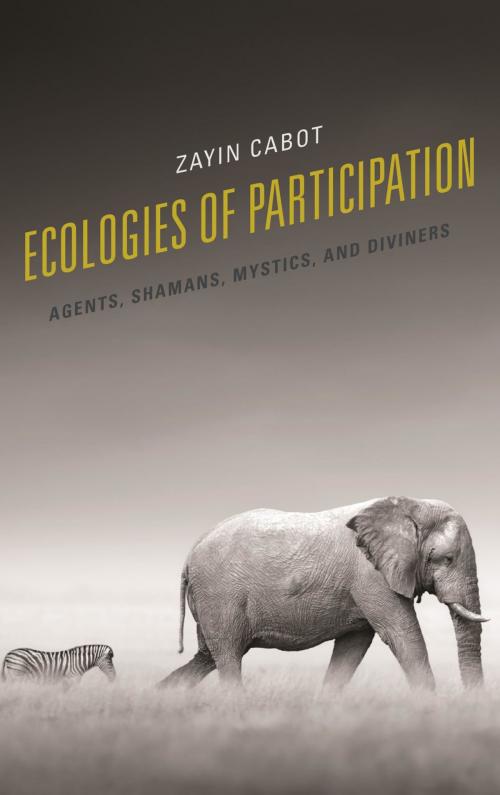Ecologies of Participation
Agents, Shamans, Mystics, and Diviners
Nonfiction, Religion & Spirituality, Reference, Comparative Religion, Philosophy, Religious| Author: | Zayin Cabot | ISBN: | 9781498568166 |
| Publisher: | Lexington Books | Publication: | April 30, 2018 |
| Imprint: | Lexington Books | Language: | English |
| Author: | Zayin Cabot |
| ISBN: | 9781498568166 |
| Publisher: | Lexington Books |
| Publication: | April 30, 2018 |
| Imprint: | Lexington Books |
| Language: | English |
In this daring debut, Zayin Cabot challenges the wise homebodies of academia. A profoundly interdisciplinary approach to comparative scholarship, Ecologies of Participation offers a methodology whereby we can face our shared planetary predicament. It is grounded in process philosophy, and asserts the importance of a new ontology of agency. It traces the importance of Lévy-Bruhl and Lévi-Strauss’s early work, while offering new insight into the ontological turn in anthropology. This book sets out to destabilize modern reductionist trends toward scientific materialism, without falling into postmodern cultural constructivism. It does not assume the givenness of nature or culture. By advancing a multi-ontology approach, this work offers robust interventions into decolonial and critical studies. Cabot takes contemporary scholarship in new and exciting directions—offering an unstable ground from which to examine our shared worlds, both human and other. Throughout the last chapters of the book, these threads are illuminated through a detailed ethics of comparison and participation.
In this daring debut, Zayin Cabot challenges the wise homebodies of academia. A profoundly interdisciplinary approach to comparative scholarship, Ecologies of Participation offers a methodology whereby we can face our shared planetary predicament. It is grounded in process philosophy, and asserts the importance of a new ontology of agency. It traces the importance of Lévy-Bruhl and Lévi-Strauss’s early work, while offering new insight into the ontological turn in anthropology. This book sets out to destabilize modern reductionist trends toward scientific materialism, without falling into postmodern cultural constructivism. It does not assume the givenness of nature or culture. By advancing a multi-ontology approach, this work offers robust interventions into decolonial and critical studies. Cabot takes contemporary scholarship in new and exciting directions—offering an unstable ground from which to examine our shared worlds, both human and other. Throughout the last chapters of the book, these threads are illuminated through a detailed ethics of comparison and participation.















